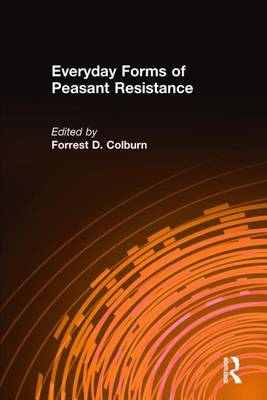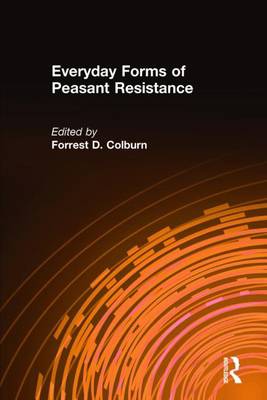
- Afhalen na 1 uur in een winkel met voorraad
- Gratis thuislevering in België vanaf € 30
- Ruim aanbod met 7 miljoen producten
- Afhalen na 1 uur in een winkel met voorraad
- Gratis thuislevering in België vanaf € 30
- Ruim aanbod met 7 miljoen producten
Zoeken
€ 216,45
+ 432 punten
Uitvoering
Omschrijving
Peasant rebellions are uncommon. "Everyday Forms of Peasant Resistance" explores peasants' foot dragging, feigned ingorance, false compliance, manipulation, flight, slander, theft, arson, sabotage, and similar prosaic forms of struggle. These kinds of resistance stop well short of collective defiance, a strategy usually suicidal for the subordinate. The central argument about peasant resistance is presented in the opening chapter by James Scott in which he summarizes and extends the thesis of his book on Malaysia's peasantry, "Weapons of the Weak". Scott's ideas are employed and refined in the ensuing seven country studies of peasant resistance: Poland, India, Egypt, Colombia, China, Nicaragua and Zimbabwe.
Specificaties
Betrokkenen
- Auteur(s):
- Uitgeverij:
Inhoud
- Aantal bladzijden:
- 250
- Taal:
- Engels
Eigenschappen
- Productcode (EAN):
- 9780873325752
- Verschijningsdatum:
- 31/01/1990
- Uitvoering:
- Hardcover
- Formaat:
- Genaaid
- Afmetingen:
- 152 mm x 229 mm
- Gewicht:
- 452 g

Alleen bij Standaard Boekhandel
+ 432 punten op je klantenkaart van Standaard Boekhandel
Beoordelingen
We publiceren alleen reviews die voldoen aan de voorwaarden voor reviews. Bekijk onze voorwaarden voor reviews.











